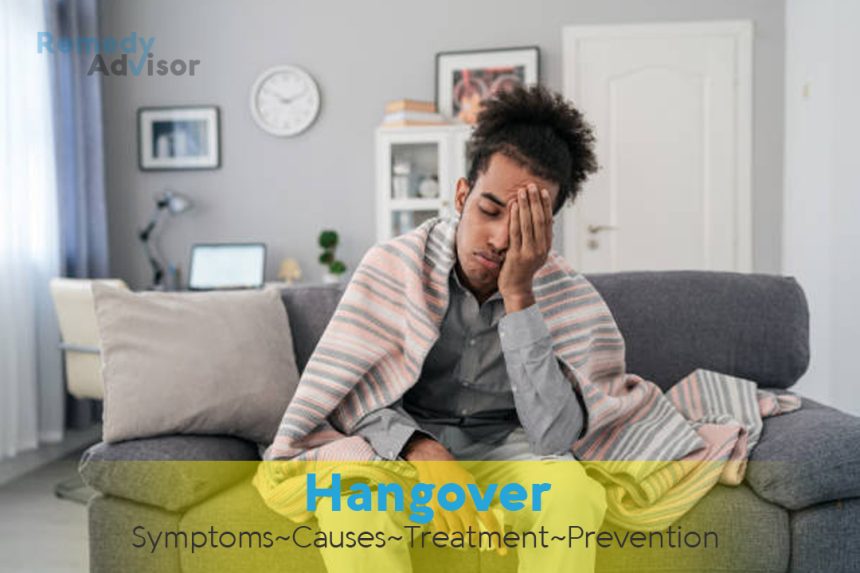What is it
A hangover is a response to alcohol withdrawal. Compared to the delirium tremens (DTs) suffered by alcoholics, it is a relatively mild response, and typically it has no lingering health consequences. But it is a sign that you’ve had too much to drink.
Not everybody gets hangovers; individual vulnerability differs. The morning-after scenario depends not only on what and how much a person drinks but also on who that person is and his or her consumption past. Hereditary makeup is a factor as well for instance, some people process alcohol rather better than others. Some people seldom, if ever, get headaches, even after drinking.
Psychological factors are also associated if a person supposes to feel sick after drinking, he or she may be more probable to focus on symptoms.
Symptoms
- Headache, sometimes severe.
- Dry mouth, thirst.
- Sour stomach, nausea, possible vomiting.
- Fatigue.
What causes it
It takes the body about two hours to burn an ounce of pure alcohol (the amount in about one drink) in the bloodstream. Because alcohol is removed from the blood at this rate, even one drink per hour produces a steady increase in blood alcohol levels. Hence, people who are of average size don’t have to get very drunk to suffer a hangover.
Some hangover symptoms are caused by the alcohol (or its breakdown products) remaining in the body. Other symptoms occur even after the blood alcohol level has returned to zero; these may be the after-effects of alcohol toxicity. One of the key factors behind a hangover is that alcohol acts as a diuretic: it stimulates the kidneys to pass more water than is being consumed. The dehydration that results contributes to dry mouth, sour stomach, and headache.
Some alcoholic beverages are more likely to produce a bad hangover. To a large extent, booze is booze: 12 ounces of beer, 5 ounces of wine, and 1.5 ounces of 80-proof spirits all contain the same amount of alcohol (ethanol). But some beverages, notably red wine and brandy, also contain small amounts of methanol (which is broken down much more slowly by the body) and other substances that may increase the severity of a hangover.
What if you do nothing
A hangover improves as time passes. In fact, time is the only truly effective remedy for a hangover.
Home remedies
No sure-fire remedy for the hangover has ever been found. Perhaps that’s fortunate; if there were a cure, some people might drink more, with disastrous results.
Pain relievers can help
NSAIDs aspirin, ibuprofen, and naproxen can help relieve a headache the morning after, as can acetaminophen. (However, pain relievers should not be taken while you are drinking in an effort to ward off a hangover. Combining alcohol with aspirin or ibuprofen may promote gastrointestinal bleeding, and alcohol combined with acetaminophen increases the risk of liver damage. All pain relievers will soon cam’ warnings to this effect.)
Try ice
Prepare an ice pack and apply it to the forehead (though for no more than 20 minutes at a stretch).
Drink plenty of water
This helps counter dehydration caused by alcohol.
Drinking coffee may help a little but not much
Coffee and other stimulants won’t speed the elimination of alcohol from the body or alleviate hangover symptoms. They may, however, perk you up.
Drinking more alcohol won’t help
In fact it will only make things worse.
Prevention
Short of not drinking alcohol no preventive measure is effective. Taking aspirin before drinking won’t fend off a hangover. In one study, men who took two aspirin an hour before drinking ended up with alcohol levels 30 percent higher than without aspirin. Aspirin may interfere with the enzyme that breaks down alcohol, scientists theorized.
Eating (particularly fatty food) while or before drinking can slow the rate at which alcohol is absorbed into the bloodstream. But no matter what you eat with your drinks, don’t drive. Remember: if you’re looking for a preventive or remedy for a hangover, you’re probably drinking too much.







